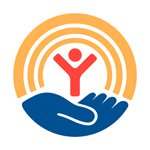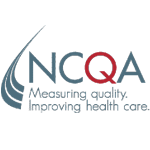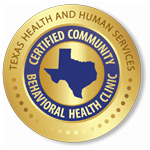
June 01, 2020
June is Posttraumatic Stress Disorder Awareness Month
Have you ever experienced something that was life threatening? Or been the victim of some type of traumatic event? Or witnessed those things happening to someone else? The answer for many is “yes.” Over half of adults will face a traumatic event in their lifetime such as actual/threatened death, serious injury, or sexual violation. In the immediate aftermath of trauma, it is normal to have it consume your thoughts and to feel on high alert. Most people recover, but some may experience longer-term emotional difficulties. Seven to 8 out of 100 people will qualify for a PTSD diagnosis at some point in their life.
Forty years ago, experts coined the diagnosis of Posttraumatic Stress Disorder (PTSD) to describe the prolonged, troubling symptoms in the aftermath of experiencing a traumatic event. Recently, PTSD was re-categorized from an Anxiety Disorder to its own category of Trauma Related Disorders. This change was made in recognition that PTSD is more than simply a fear response involving re-living the memory and avoidance. It is a complex group of symptoms that include changes in mood/emotions such as sadness and guilt as well as behavioral changes including reckless, impulsive, or angry behavior.
If you are asking yourself if you have PTSD, the only way to know for sure to talk to a mental health care provider. Even if it is not full-blown PTSD, therapy can help to cope with the troubling thoughts and feelings following difficult life experiences. The Primary Care PTSD Checklist (below) is a 5-item screen for PTSD. There are many proven treatment options including psychotherapy and medications. Many people suffering from PTSD do not engage in therapy due to a variety of reasons. Beliefs about seeking help, stigma, and shame can be barriers. Also, wanting to avoid talking or thinking about the trauma is one of the symptoms of PTSD.
No one can erase a memory or a painful experience but getting the right treatment can result in a better life for the person and family impacted by PTSD. As we work to raise awareness this month, here are some things you can do to help a loved one who you think might be suffering from PTSD:
- Think of PTSD as an invisible wound or injury. Avoid any language that might make them feel like you think they are crazy for their reaction.
- Talk about the benefits of therapy if they are feeling unsure about seeking help.
- Pick a time when things are calm to talk about it; never suggest someone get help in the middle of an argument or heated conversation.
- Take care of yourself! It can be stressful to live with someone with PTSD. Set boundaries and have a good support system. The best way to encourage someone else is to model doing that for yourself.
PC-PTSD-5 Screen for PTSD
Sometimes things happen to people that are unusually or especially frightening, horrible, or traumatic. For example:
- a serious accident or fire
- a physical or sexual assault or abuse
- an earthquake or flood
- a war
- seeing someone be killed or seriously injured
- having a loved one die through homicide or suicide
Have you ever experienced this kind of event? YES / NO If no, screen total = 0. Please stop here. If yes, please answer the questions below:
In the past month, have you …
- had nightmares about the event(s) or thought about the event(s) when you did not want to? YES / NO
- tried hard not to think about the event(s) or went out of your way to avoid situations that reminded you of the event(s)? YES / NO
- been constantly on guard, watchful, or easily startled? YES / NO
- felt numb or detached from people, activities, or your surroundings? YES / NO
- felt guilty or unable to stop blaming yourself or others for the event(s) or any problems the event(s) may have caused? YES / NO
If you answer “yes” to any three items (items 1 to 5 above), you should talk to a mental health care provider to learn more about PTSD and PTSD treatment. Answering “yes” to 3 or more questions on the PC-PTSD-5 does not mean you have PTSD. Only a mental health care provider can tell you for sure. And, if you do not answer “yes” to 3 or more questions, you may still want to talk to a mental health care provider. If you have symptoms that last following a trauma, treatment can help – whether or not you have PTSD.
For more information about PTSD symptoms and treatment, you can visit the National Center for PTSD website at www.ptsd.va.gov.
Stay connected
Sign up for our newsletter












